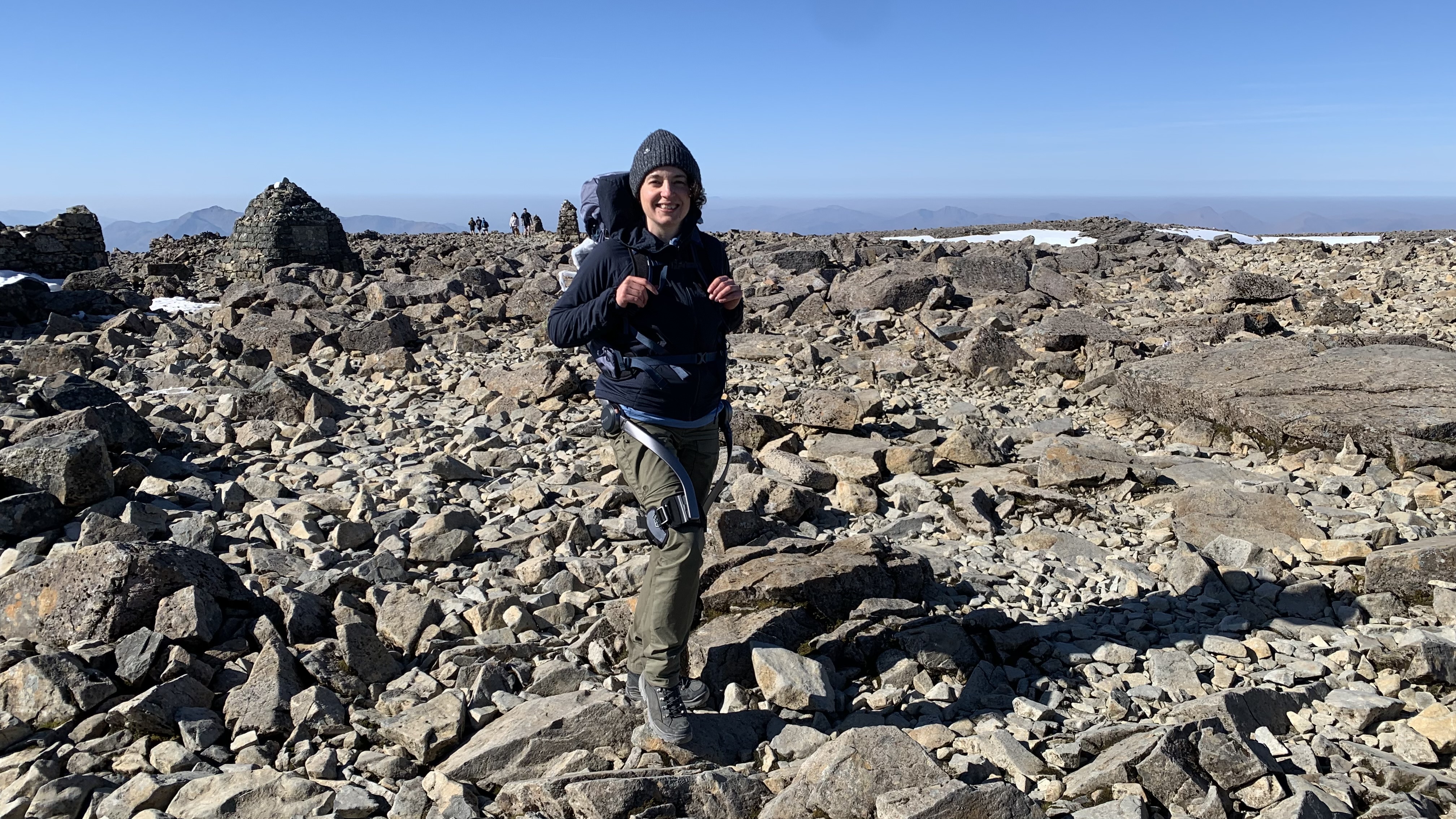The best ski goggles: unbeatable protection for your eyes
Keep everything crystal clear on the piste this winter in the best ski goggles available
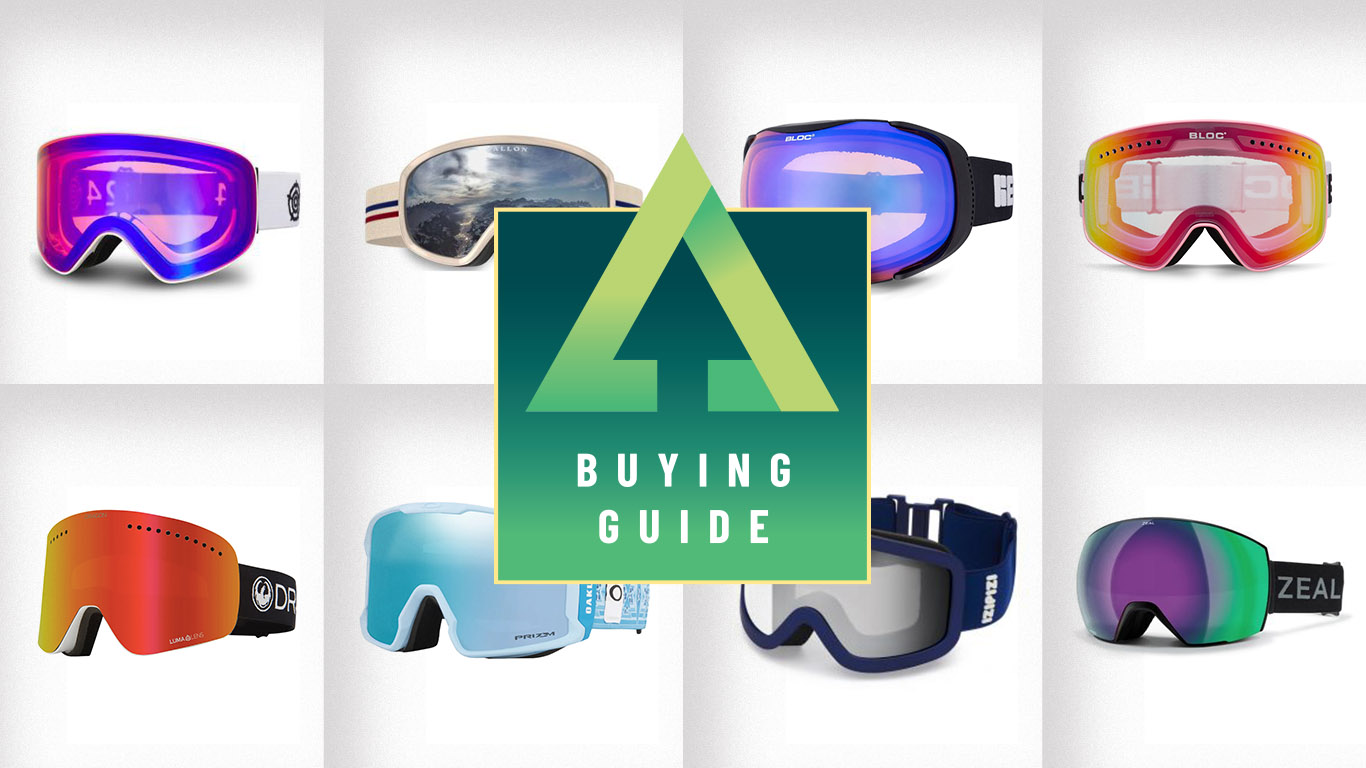
A pair of the best ski goggles will make a huge difference to your snowsport pursuits this winter. When you take to the slopes or go off-piste into the backcountry, you want a reliable pair that allow you to safely see everything as clearly as possible and in a variety of conditions. Plus, one of the reasons you're there in the first place is to enjoy the beauty of the mountain environment around you.
The best ski goggles will protect your eyes from glare, cold and blowing snow. The finest options come with lenses designed for specific weather conditions and some even come with lenses you can swap on the fly. For those bluebird days, they protect your eyes from UV, while they're also your shield against wind, sleet and snow on those less than idyllic days.
So, a decent pair of goggles is just as essential as the your ski jacket when it comes to hitting the slopes (if yours needs replacing, our guides to the best ski jackets for men and ski jackets for women are full of great options). As well as essential levels of protection, the greatest ski goggles also provide a comfortable fit, a panoramic field of vision and they're designed to not fog up when you're working up a sweat.
In this guide, we feature the very best ski goggles, the finest wide-angle option and great value pairs that won't break the bank. If your adventures are less extreme, check out our guide to the best sunglasses for outdoor activities instead.
The very best ski goggles in 2025
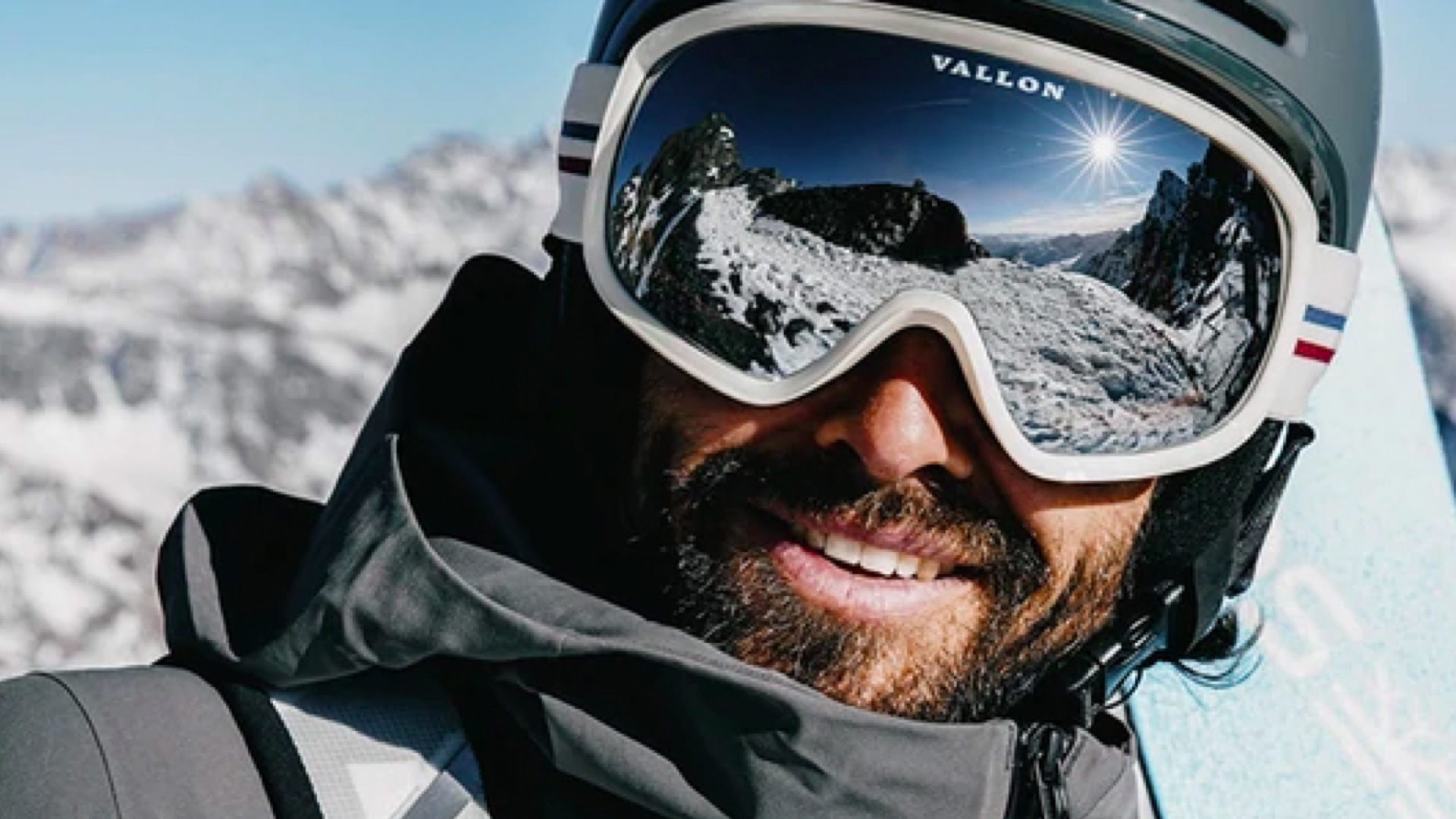
Specifications
Reasons to buy
Reasons to avoid
Vallon do a fine line in retro-inspired and rather handsome mountaineering sunglasses, and their ski goggle offerings are equally good. The Freebirds may have a retro feel but their technology is bang up-to-date, with a wide spherical lens for a wide, unimpeded field of vision and ZEISS lenses which provide great clear quality.
The included CAT 3, 15% VLT lens is ideal for sunny to cloudy conditions. A spare lens isn’t included, but two interchangeable hues are available (Smoke, a 13% VLT suitable for bright and sunny conditions, and Orange, a 36% VLT for poor conditions). We reckon it’s worth investing in both, and then you’ll be covered for most ski days.
It is worth noting here that there’s a new Freebirds goggle available for 2022, but only one spare lens is available for this model this winter, so we reckon it’s worth picking the classic Freebirds goggle for now. We also like that Vallon commit to a 1kg plastic clean-up for each pair of Freebirds sold.
Read our full Vallon Freebirds ski goggles review
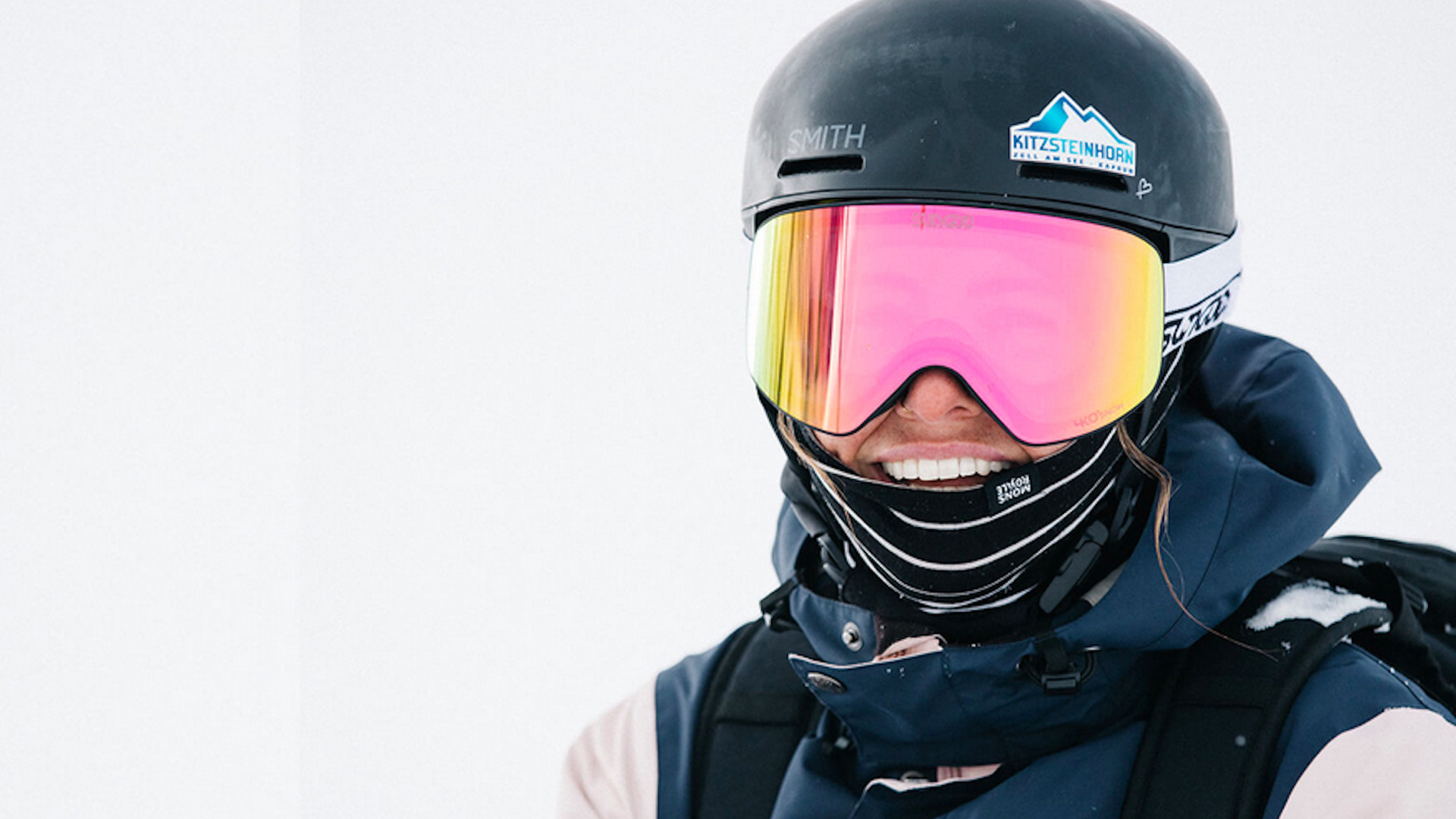
Specifications
Reasons to buy
Reasons to avoid
Sungod Vanguards are fully customizable when you order them online, allowing you to pick a lens tint from eight options (ranging from 9% to 38% VLT), and then play around to find your favorite frame and strap colors. The customization process is easy and good fun, and Sungods have a handy online guide to different lens hues in case you aren’t sure what you need.
Once they arrive, the custom Vanguards are comfy to wear, and changing lenses is also pleasingly easy – lenses clip in and out of the frame quickly (although a spare lens isn’t included). The lens of the Vanguards is on the large side, and offers a great, unimpeded field of vision.
Wide vents avoid any fog build up. The strap is comfortable and stays put over both a helmet and a bobble hat. The Vanguards are here for a long time, too – they’re covered by a lifetime guarantee against breakage, and can be returned for repair from anywhere in the world. You can also buy spare straps and frames as well as lenses, so you can easily keep them good as new for decades of ski trips.
Read our full Sungod Vanguards goggles review
Best ski goggles for wide-angle vision
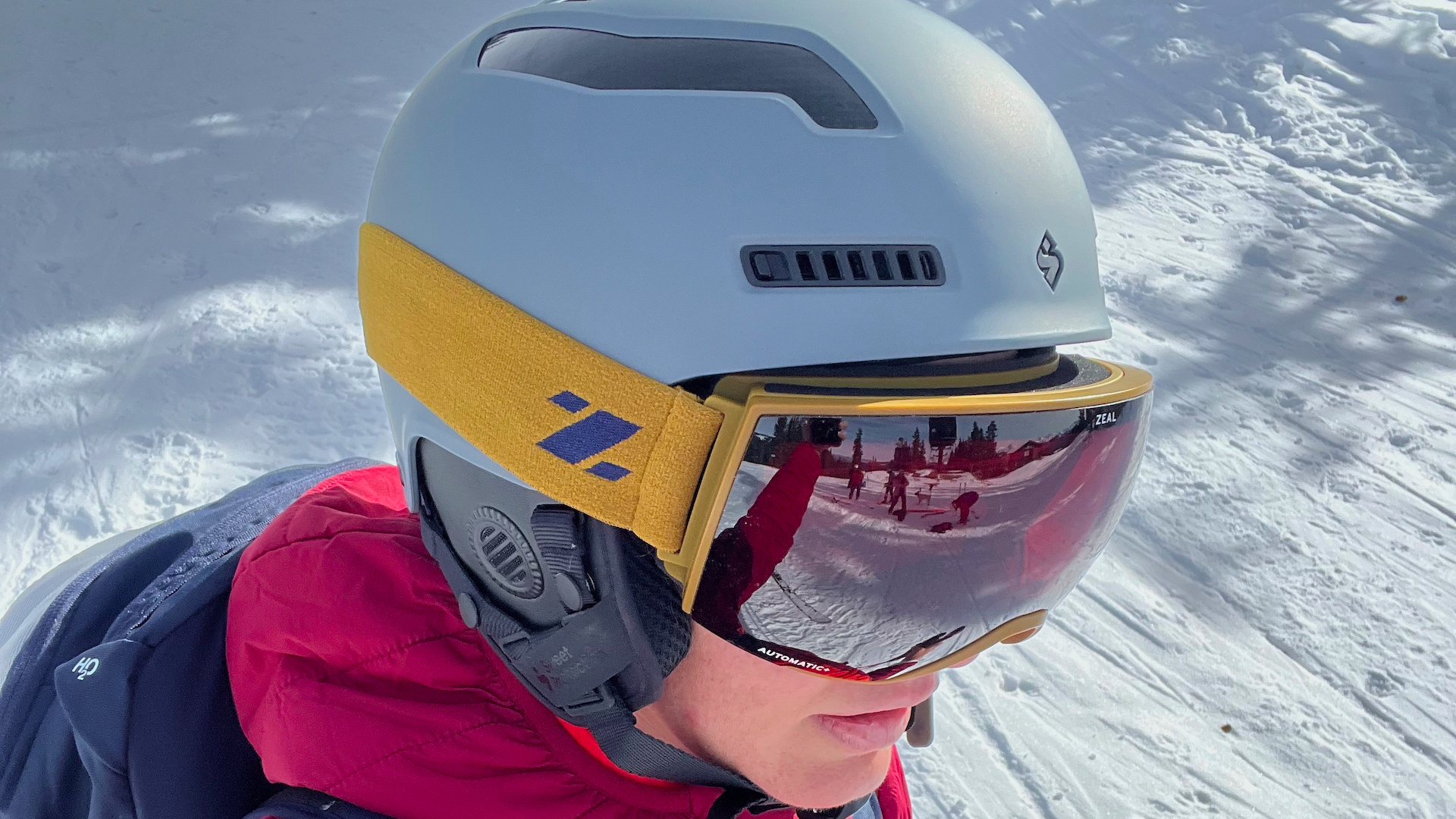
Specifications
Reasons to buy
Reasons to avoid
When you think of Zeal Optics Hangfire Ski & Snowboard Goggles, think ‘broad’: the visual perspective you get while wearing them is big, along with the wide variety of lens style and frame color options to fit your needs and desires while out on the ski slopes.
The most notable feature that Zeal has brought forward with the Hangfire is their Observation Deck Technology (ODT) that allows wearers to see 20% more of the slope below them. This paired with the goggles’ spherical lens design (designed like the shape of an eye), makes for no visual distortion and also ensures great peripheral vision.
These goggles provide 100% UV protection, which is vital in order to fully shield your eyes from harsh sun reflection on snow, and Zeal’s option of Polarized Automatic + RB (Rose-Based) is the brand’s own technology that adjusts to changing light conditions, so you don’t have to change your lenses if the light changes. Every RB lens features a rose-base for added contrast in low-light conditions, and automatically adjusts from a low-light rose when it’s cloudy to a high visibility, deep rose for sunny conditions.
Zeal’s Hangfire Ski & Snowboard Goggles also have non-adjusting lens options like mirror lenses and more transparent styles, and with these lens types wearers can change them out according to conditions if desired. Many frame styles are available too, so its possible to mix and match a frame color with a lens style to find an ideal combination. These goggles are helmet compatible, but they aren’t always perfectly flush against non-Zeal helmets.
The best of the rest ski goggles
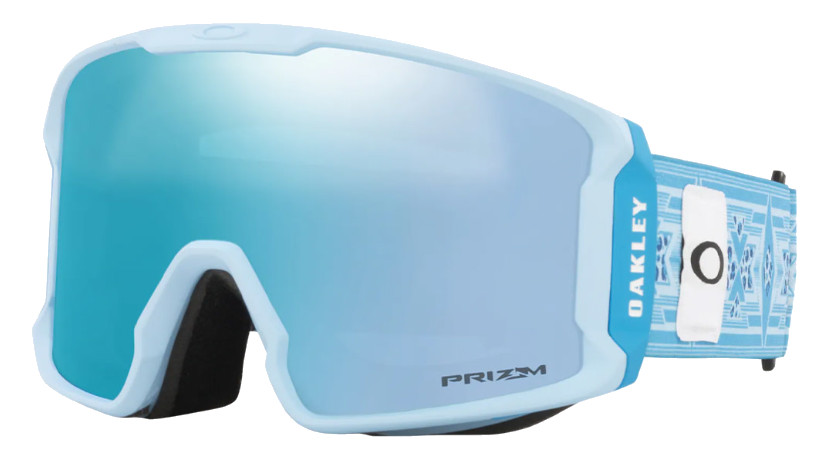
Specifications
Reasons to buy
Reasons to avoid
Oakley have collaborated with a clutch of pro snow athletes for their new collection of Line Miner goggles. We like this baby blue number designed by American snowboarder and two-time Olympic gold medallist Jamie Anderson.
Style isn’t the first factor we look for in goggles, but if you like to make a bit of a statement on the slopes, this fun design is the one to pick, sporting a pastel strap that mashes up geometric patterns and cheetah print. The strap performs well too – it’s wide, lined with sticky silicone and stays put all day. A cylindrical lens and an oversized design offer a decent field of vision on and off the pistes.
Oakley claim their Prizm lens technology boosts both color and contrast – we definitely agree here. They offer crisp, clear vision that performs really well on snow. This version comes with a 13% VLT sapphire lens that works well for bright sun through to some cloud cover – good for grabbing any morning when the mountain weather is looking promising.
Read our full Oakley Line Miner Snow (Jamie Anderson Series) ski goggles review
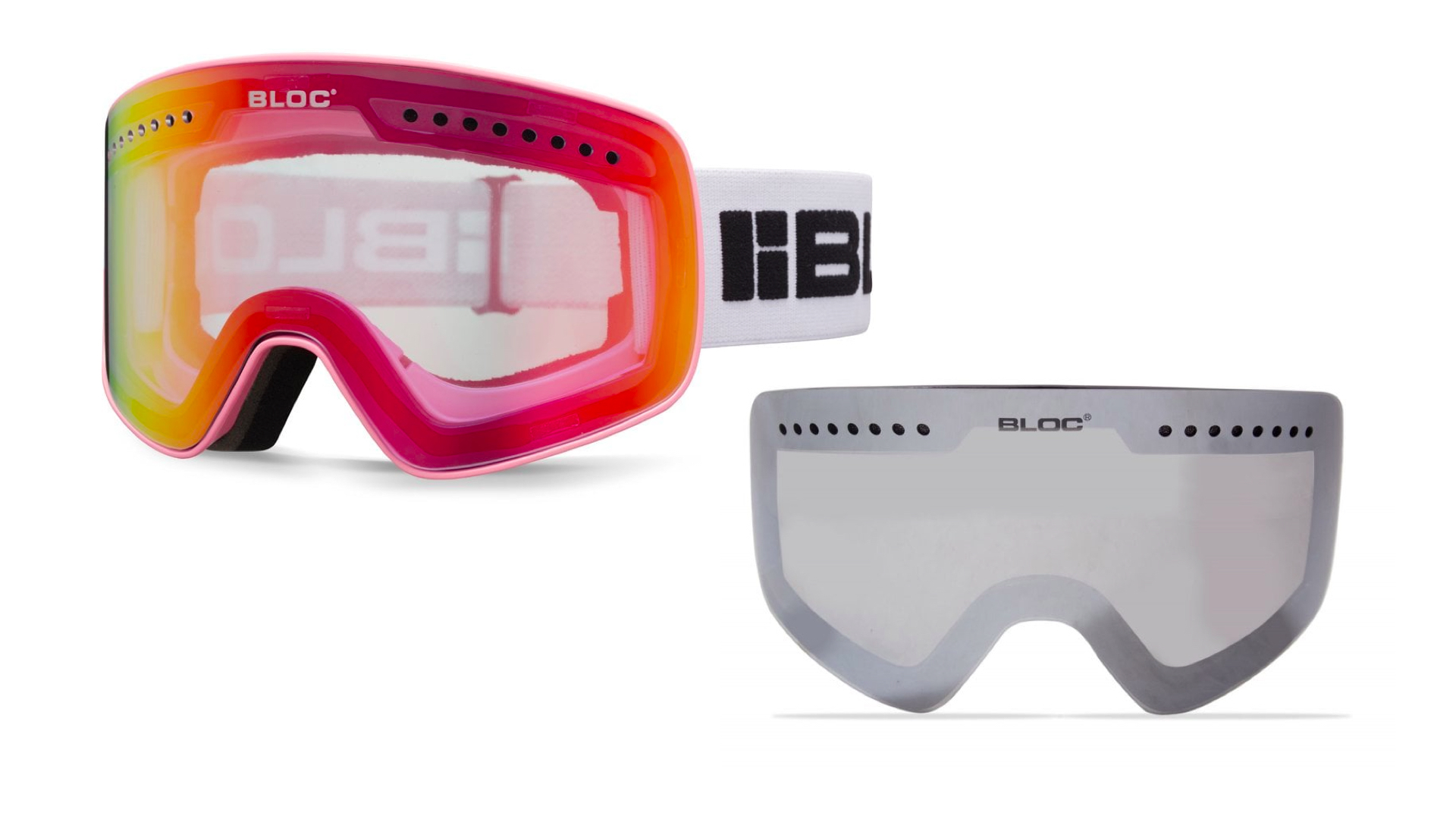
Specifications
Reasons to buy
Reasons to avoid
BLOC’s Fifty Five goggles come with two swappable lenses and in four combinations, so you can pick the double act that best suits you and the skiing conditions you’re looking at.
We tested out the G553, which comes with one clear, slightly pink-tinted CAT 1 lens ideal for low light and one silver mirror CAT 3 lens designed for bright sun, together making this goggle ready to tackle most mountain weather, ideal for changeable days in the mountains.
A well-designed magnetic system lets you clip off the lenses in seconds – and it’s a doddle to swap between them even if you’re wearing thick gloves and standing halfway down a ski slope. A wide foam lining on the frame does a good job of keeping the goggles in place on your face, but we were less impressed with the fabric band, which is surprisingly stiff, and a pain to adjust on the fly. Still, good value for money for two-lens goggles.
Read our full BLOC Fifty Five ski goggles review
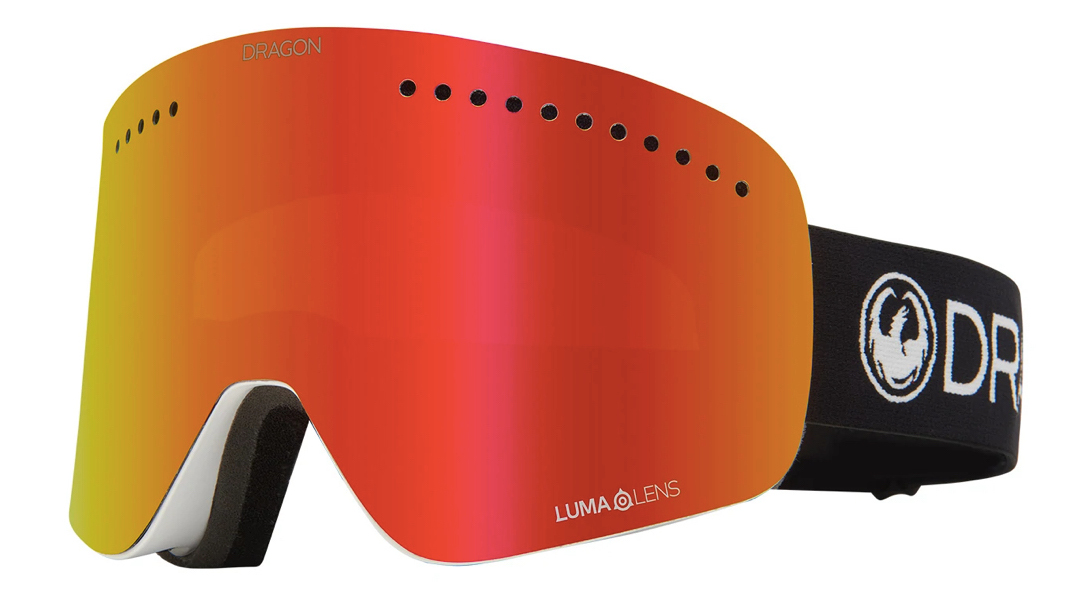
Specifications
Reasons to buy
Reasons to avoid
You can tell just by looking at the oversized, frameless cylindrical lens on these Dragon Alliance NFX goggles that they’re going to be easy on the eye, literally – they offer a great wide field of vision.
These are large goggles, mind – anyone with a smaller facial structure should try out the smaller and scaled-down NFXs instead. Vents and an anti-fog coating keep the lenses clear even if you’re working up a sweat on the slopes, and a generous amount of foam feels comfortable against the face and helps the goggles fit nicely under a helmet.
There are lots of incarnations of the NFX available but we recommend the Ebony Spyder because we rate the two included lenses Dragon Alliance have plumped for here – the 23% VLT is perfect for bright conditions, and the Light Rose 66% VLT works well to help you see your way in low light, snowfall for both, so you should be covered from first to last lift. There are two catches for swapping lenses – it’s simple to do, but does require stopping and shedding gloves if you’re mid-ski.
Read our full Dragon Alliance NFX ski goggles review
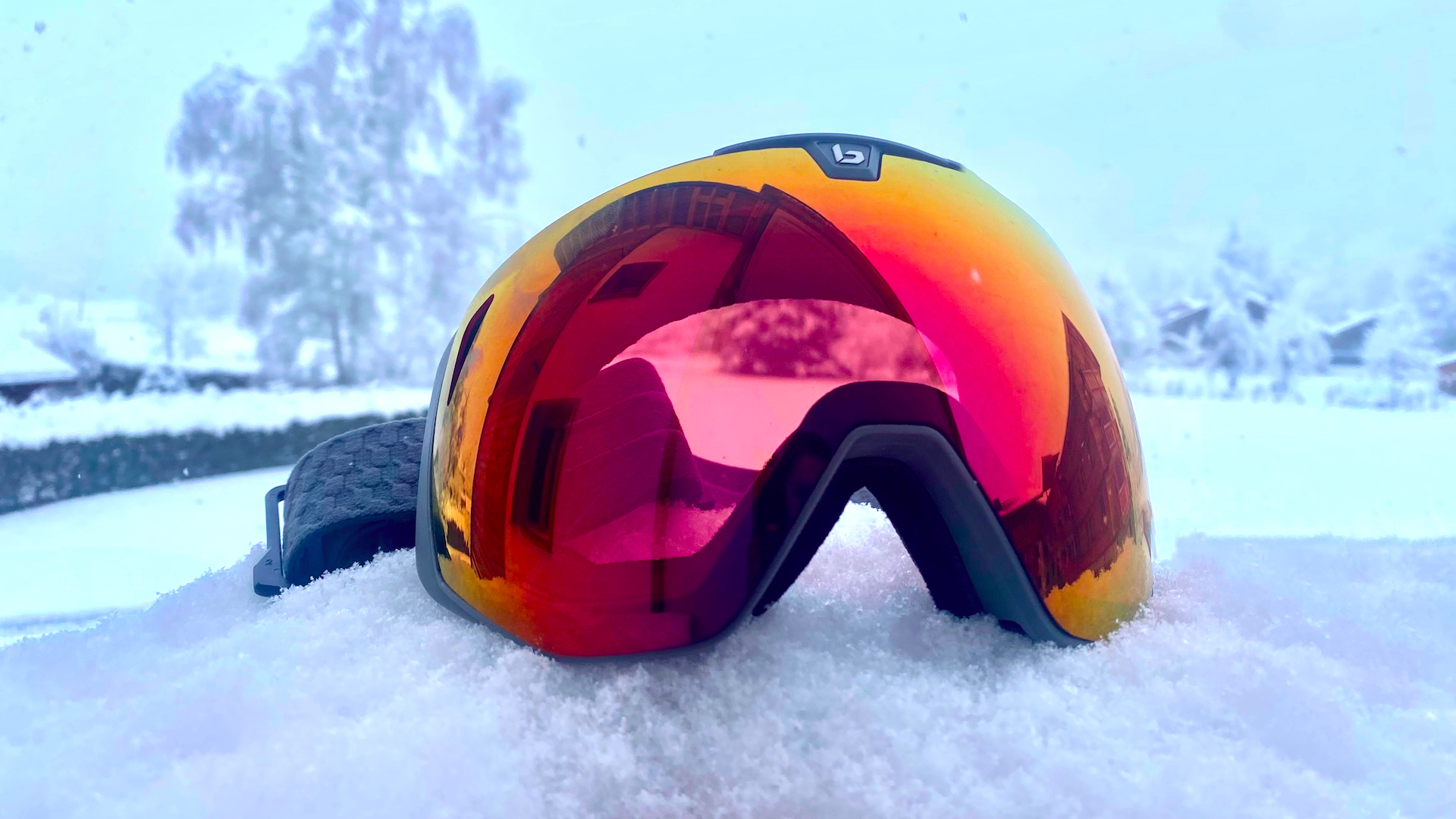
Specifications
Reasons to buy
Reasons to avoid
Bollé’s Torus Neo aims to be your new quiver-of-one goggle thanks to its two lenses that are easy swapped thanks to magnets. If you don’t want the expense and hassle of owning multiple pairs, a goggle that lets you swap lenses on the fly is a clever choice.
There are five versions of the Bollé Torus Neo goggle available, each with two lenses included, one Cat 2 or Cat 3 and one spare Light Vermillion Blue Cat 1 lens, aiming to cover you for most conditions. We tested the Titanium Matte iteration, which comes with a Ruby Cat 2 lens (with a 26% VLT rating, suitable for sunny to cloudy conditions) and a Light Vermillion Blue Cat 1 lens (with a 50% VLT, suitable for low light.)
Popping on the Torus, we found the strap easy to adjust, staying put both on a helmet and a beanie hat. We also found the lenses pleasingly easy to adjust on the go; a magnetic frame and small latches makes it the work of seconds to swap in a different lens in the Torus Neo. Both lenses we tested, the ruby Cat 2 and the blue Cat 1, offered fantastic clarity of vision and didn’t fog up.
So far, so perfect – but where the Torus Neo let us down on test was in the fit. When worn under a ski helmet, gaps at the sides and top of the goggles let air and wind in, which isn’t ideal in snowy, blowy weather.
Best budget ski goggles
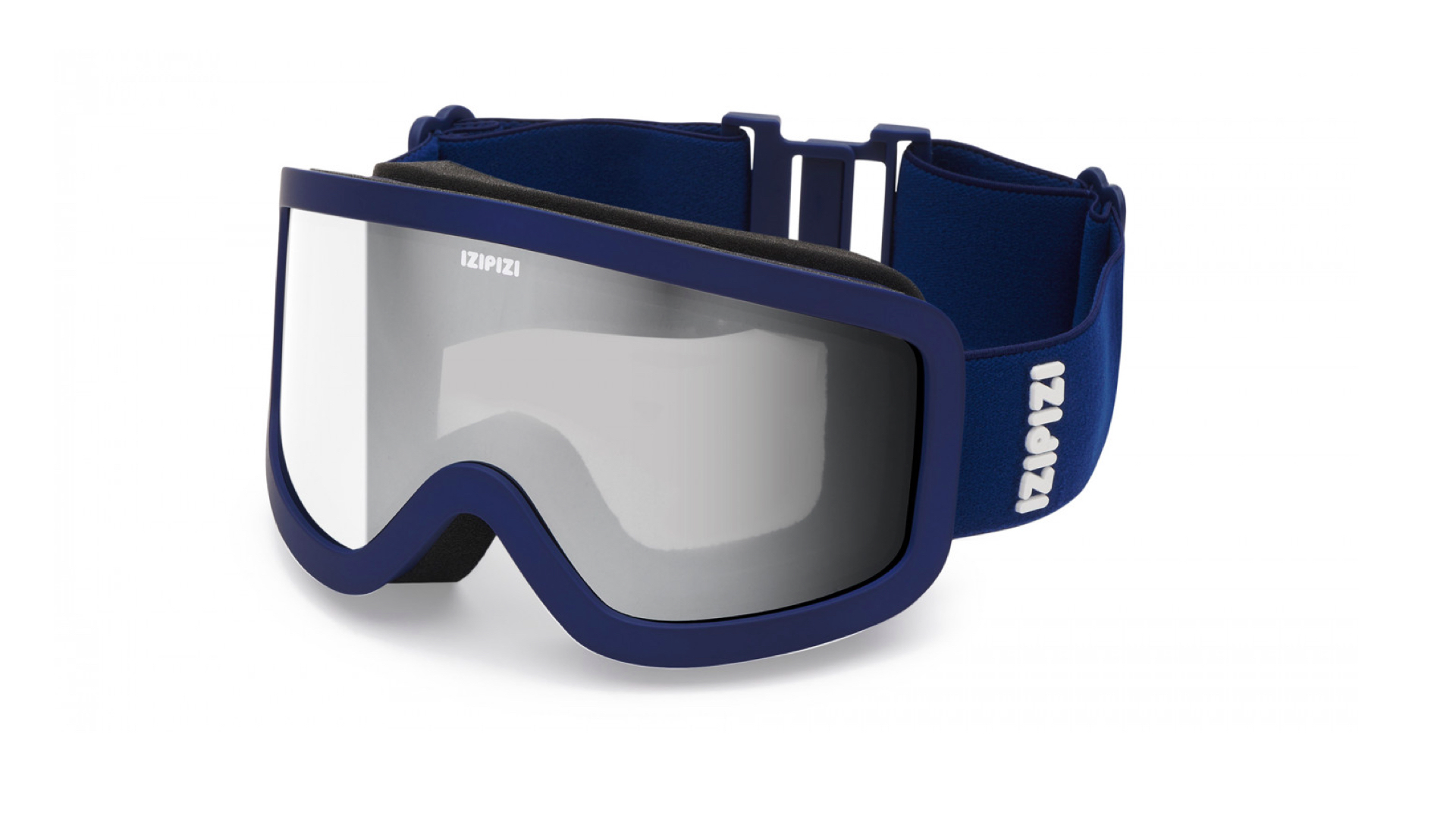
Specifications
Reasons to buy
Reasons to avoid
Simply named the “All Weather“, these minimalist styled goggles are IZIPIZI’s all-rounder choice, fitted with a grey category 2, 20% VLT lens that aims to offer good visibility in most weather conditions.
If you don’t like massive bubble-shaped goggles that take up half your face you’ll love this more subtle style. A foam lining moulds nicely to the face with no gaps, and there’s enough room for glasses to fit beneath the All Weathers despite their slim frame.
Seven frame colorways are available, as well as Cat 1 and Cat 3 lens versions from IZIPIZI, but we rate this as a fuss-free all-rounder, and we like that you can order small or large sizes from the range, rather than having to choose from male or female offerings in order to find the perfect fit.
The downside to this lens design is that it doesn’t offer as wide a field of vision as a big spherical lens would, and you can see some of the frame in the corners of your eyes, but it’s absolutely fine for beginner-intermediate skiers planning on sticking to the pistes and after something affordable for most weather.
Read our full IZIPIZI Snow All Weather ski goggles review
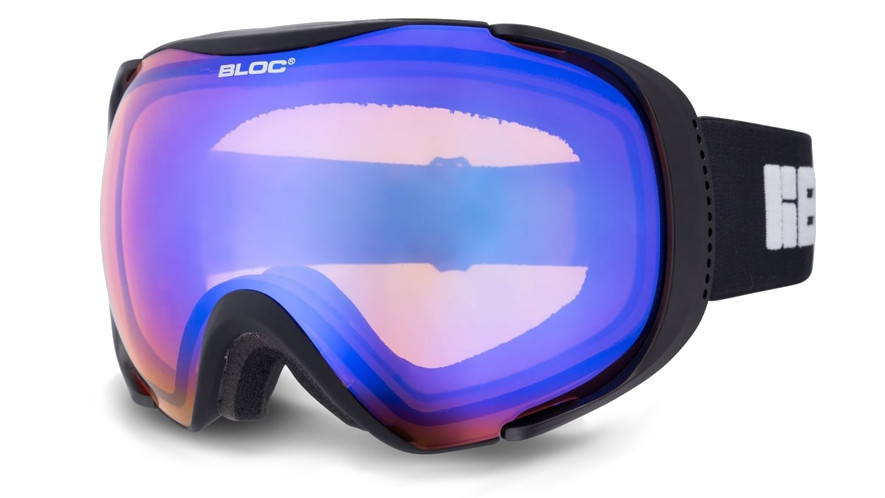
Specifications
Reasons to buy
Reasons to avoid
The plastic frames of goggles at the more affordable end of the market tend to look and feel rather flimsy and cheap – not so with the BLOC Mask MK3, which are solid, sturdy and will survive being chucked in a pocket when they aren’t protecting your peepers.
These goggles are also better at reducing fog build-up than other designs at this price point, with wide vents, double lenses and an anti-fog coating. Okay, so you might not go battling up hills on a ski tour in them, but for most on-piste adventures they’ll do you proud.
Five lens hues are available, ranging from CAT 2 to CAT 3, and they all sit nicely over glasses. While the insulating fleece that lines the frame is comfy against the skin, it doesn’t hold the goggles in place as well as we’d like with all helmets; you might end up with the dreaded helmet gap that leads to an interesting sun tan, so it’s worth checking these goggles work with your helmet before you head to the slopes. All in all, great for the price.
Read our full BLOC Mask MK3 ski goggles review
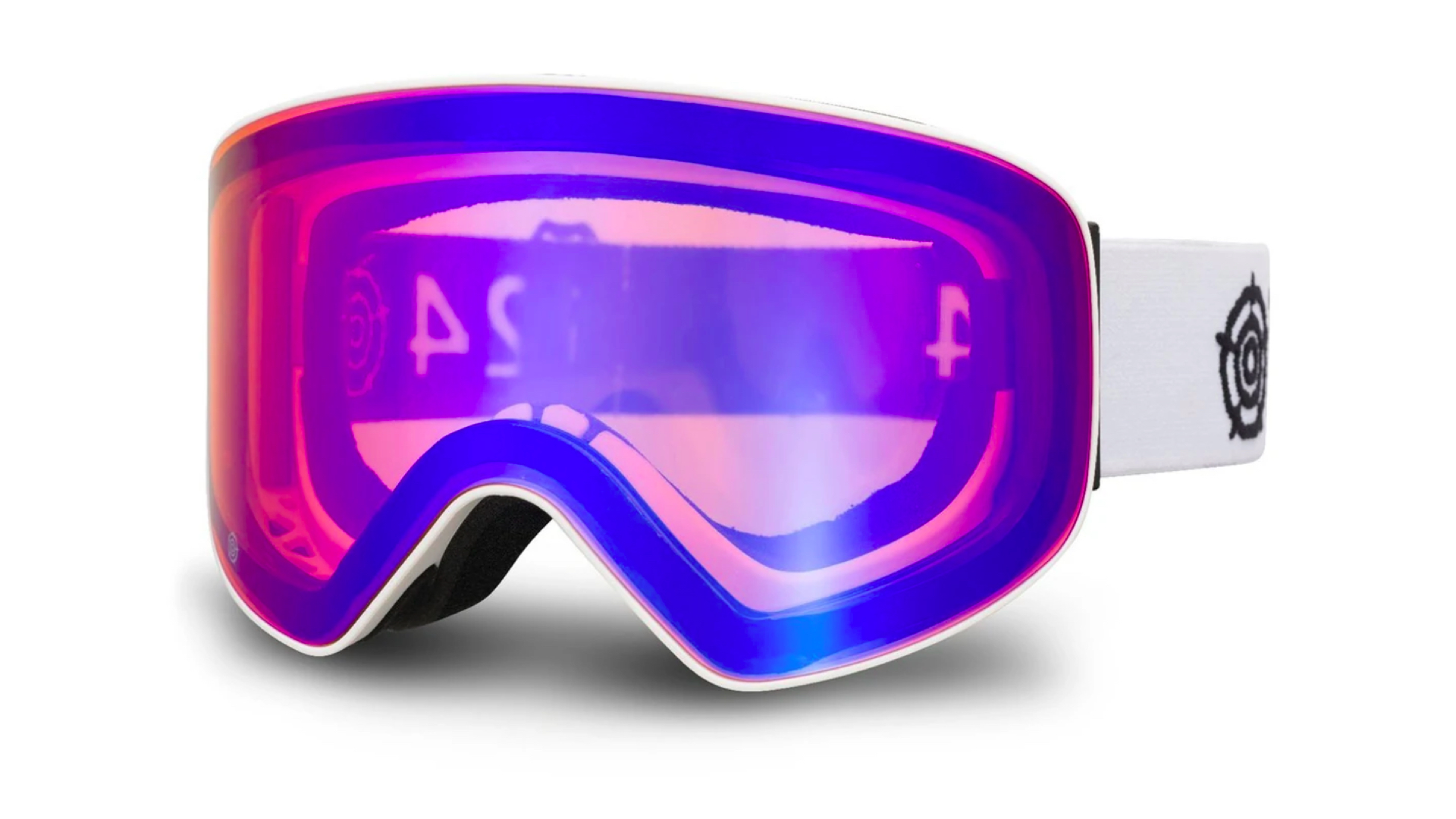
Specifications
Reasons to buy
Reasons to avoid
Shopping on a budget for your next winter sports holiday? Our top pick for affordability is TOG24’s Chamonix goggles, which are available with a rosy-tinted CAT 2 lens designed for use in low light.
On test, they proved decent enough to get you through most of the weather conditions you’d encounter on a first holiday. The Chamonix punch above their price point, with a comfortable fleece lining around the eyes, a stretchy, comfy strap and an adequate range of vision. We also found them less likely to fog up than other budget buys, thanks to a double lens treated with an anti-fog coating.
There’s no second lens included, but these would still make great goggles for your first ski trip, or to have in your pack as a handy spare if you already own a lens intended for use in bright sunlight. The frame of this unisex model is on the generously wide side – great for men and for women with wider faces, but possibly too roomy for petite faces.
Read our full TOG24 Chamonix Cat 2 ski goggles review
Ski goggles | RRP | Lens | Compatibility |
Vallon Freebirds | $157 (US) / £116 (UK) / €139 (EU) | CAT 3, 15% VLT | Good performance and looks make these crowd-pleasing goggles |
Sungod Vanguards | $149 (US) / £110 (UK) | Eight lenses available: VLT 9% / 11% / 17% / 21% / 23% / 38% | A great all-rounder for all levels, designed to last |
Zeal Optics Hangfire Ski & Snowboard Goggles | $129– $249 (US) / £110–£216 | Photochromatic / Polarized / Molecular Mirror | Downhill and cross-country skiing and snowboarding |
Oakley Line Miner Snow (Jamie Anderson Series) | $185 (US) / £137 (UK) | 13% VLT, CAT 3 | Ideal for style-conscious keen snowboarders |
BLOC Fifty Five G553 | $115 (US) / £85 (UK) | CAT 1, 43% VLT | Perfect for anyone after swappable lenses at a pocket-friendly price |
Dragon Alliance NFX | $156 (US) / £115 (UK) | 23% VLT | A solid two-lens system for skiers and boarders with larger faces |
Bollé Torus Neo Snow Goggles | $250–$300 (US) / £250 (UK) | Black chrome / Light vermillon blue / Volt black / Volt ice blue / Grey cat | Downhill and cross-country skiing and snowboarding. Suitable for any weather conditions |
IZIPIZI Snow All Weather | $91 (US) / £60 (UK) | CAT 2, 20% VLT | A good go-anywhere lens if you just want one simple design |
BLOC Mask MK3 | $66 (US) / £49 (UK) | Four available: CAT 2-3, VLT 8-43% | Affordable, solid and fuss-free first pair of goggles |
TOG24 Chamonix Cat 2 Goggles | £80 (UK) | CAT 2 | Beginners off to ski school should snap up these good-quality goggles |
How we test the best ski goggles
The goggles featured here have been tested by our expert reviewers on the snowy slopes of alpine resorts and on backcountry trails in Europe and/or the mountains of North America. Each has been assessed against criteria including lens and frame quality, comfort, clarity of vision, stylishness and price.
What to look for when buying the best ski goggles
Here, we’ve rounded up the best ski goggles on the market to suit most budgets and weather conditions. But what makes the best ski goggles for you? Below are some considerations you should think about before making a purchase.
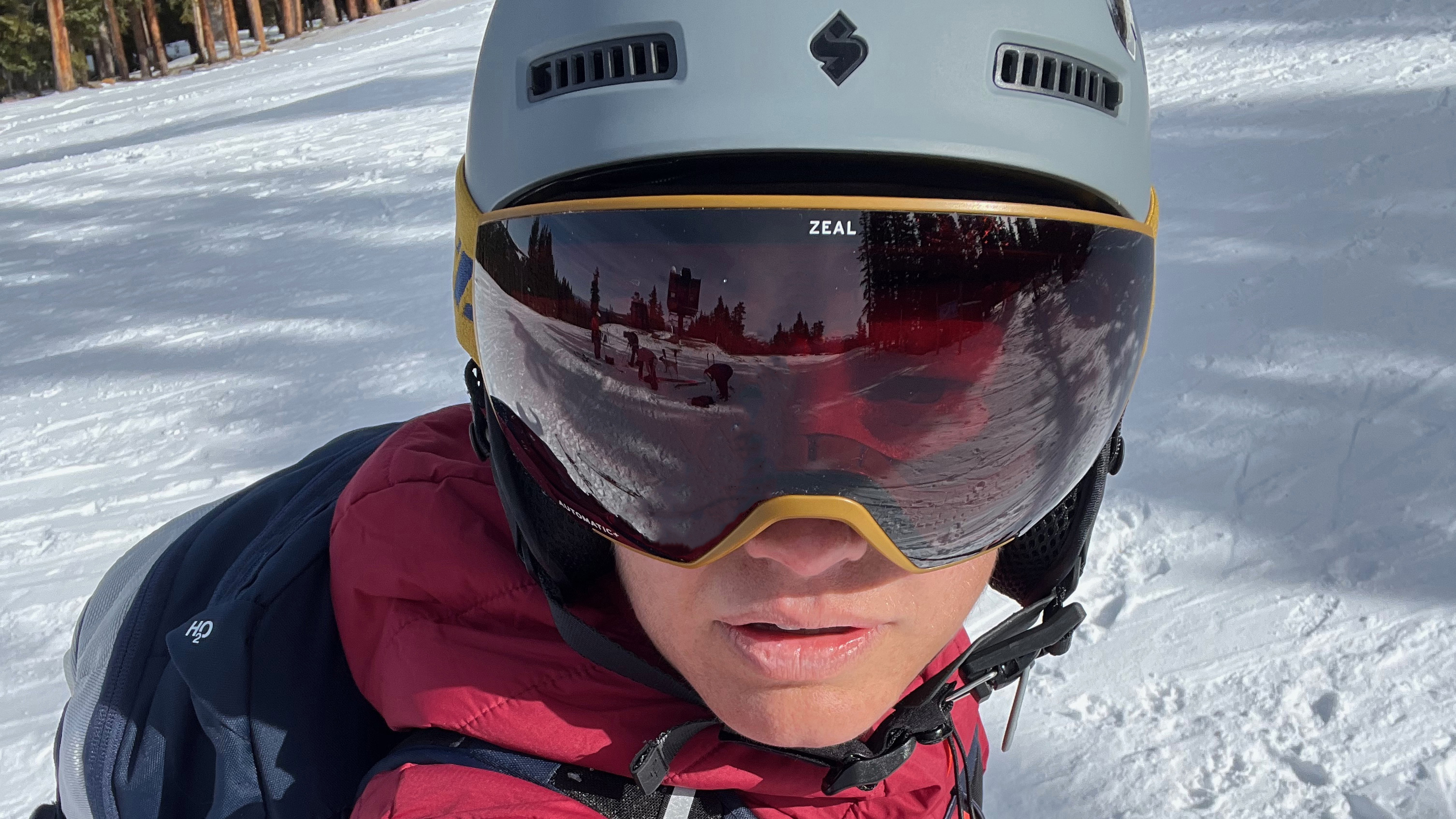
Lenses
You can trust Advnture
Different lens colors aren’t just a fashion choice – they work for different winter weather conditions. You may see goggles sold according to their lens category:
CAT 1 lenses are best for bad weather, and are usually transparent or lightly tinted
CAT 2 goggles are intended for use in medium to bright conditions, with lightly tinted lenses
CAT 3 goggles are great for sunny weather, and are more heavily tinted
Lenses usually also come with a VLT rating (for Visual Lens Transmission), and the lower the number, the better the lens is suited to bright sunshine. For example, a lens with a VLT of 40% will be effective for low light, while one with 9% VLT is ideal for bright bluebird days, and a 21% would make a good all-rounder.
To deal with fast-changing weather conditions, skiers usually either carry two pairs of goggles or one pair with a removable lens, so you can pop a differently tinted lens in quickly if needed. If you’re only investing in one pair of ski goggles, it’s definitely worth choosing a pair with changeable lenses, and that comes with two different lenses included.
A problem with cheaper goggles is that they can easily fog up, immediately clouding your vision. Look for goggles with double lenses and that are treated with anti-fog and anti-scratch technology to keep them clear and scratch-free. Good lenses usually offer 100% protection from UVA and UVB light as standard, but do make sure that the pair you pick protects your peepers from both.
Shape
Most ski goggles on the market feature either spherical or cylindrical lenses. You may have noticed there’s a trend for sporting big, wraparound goggles that offer uninterrupted peripheral vision – these spherical lenses tend to be more expensive but offer improved vision, so they’re worth spending more on if you’re planning long days on the piste. Cylindrical lenses offer less of a peripheral view, but also tend to be more affordable.
Fit
Try your new goggles on before you head to the mountains, to check they fit your face well. Many of the best ski goggles are unisex, but smaller or female-specific goggles are a good choice if you have a narrow face, or when buying goggles for teenagers.
Some goggles come in different sizes, which makes shopping easier. Check the goggles you buy sit flush with your face, and that the foam between the goggle frame and your skin feels comfy and does not impede your vision. Check that the strap on the model you buy is easy to adjust, and fits snugly over both a beanie hat and your helmet (some helmets have clips you can pop a goggle strap into), and doesn’t slip down when you move. If you wear glasses, look for goggles that are labelled as glasses-compatible (sometimes labelled OTG, for “over the glasses“).
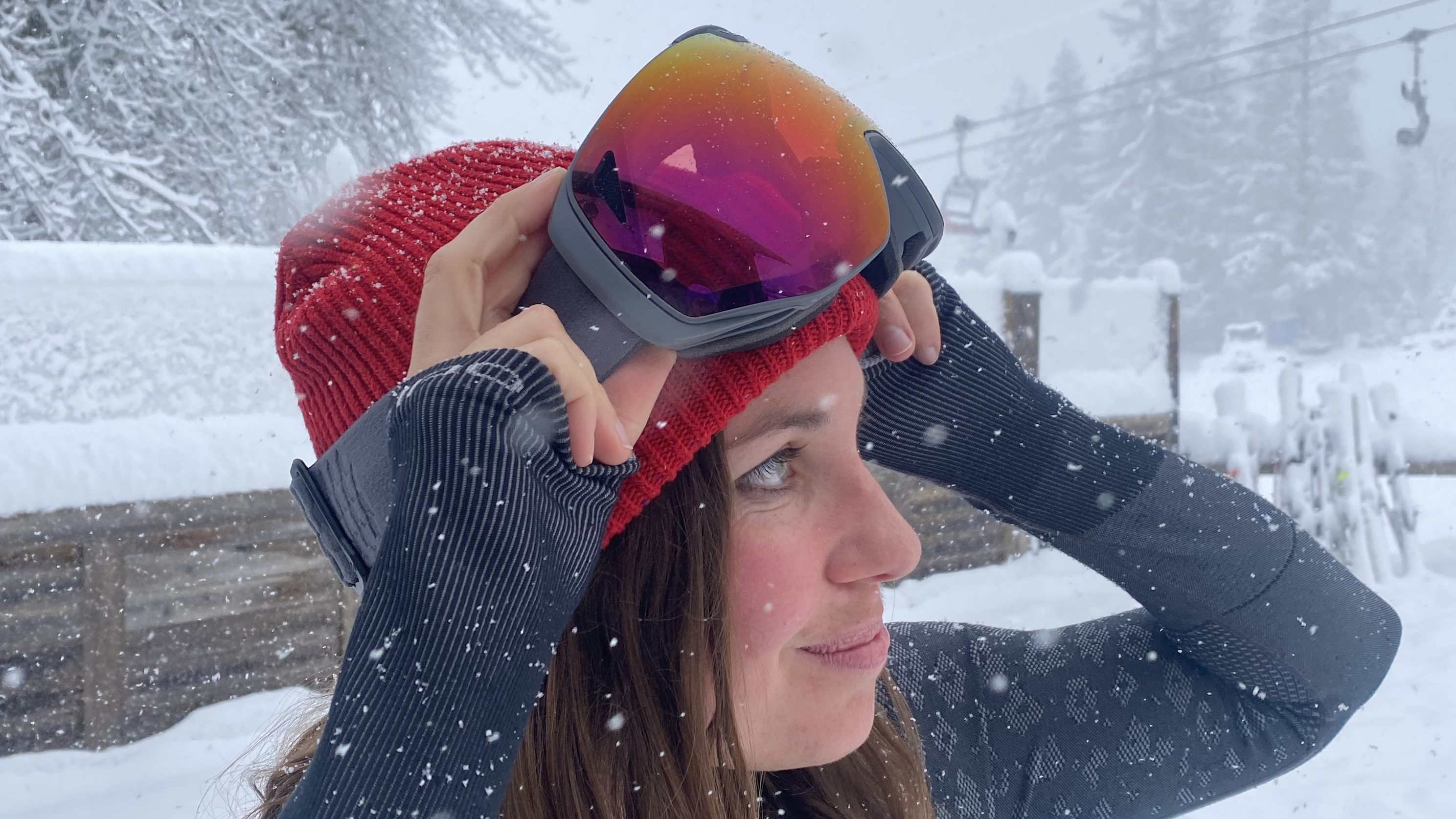
Maintenance
The best ski goggles tend to be expensive, so make sure you care for yours so that they last for many winter seasons to come. It’s easy to scratch lenses – only clean them with a lens cloth, and keep your goggles in a soft goggle bag (usually included) when you aren’t wearing them, rather than just chucking them in a backpack or a ski jacket pocket. Never wipe the inside of your lens, as this can remove the anti-fog coating.
Advnture Newsletter
All the latest inspiration, tips and guides to help you plan your next Advnture!
An award-winning travel and outdoors journalist, presenter and blogger, Sian regularly writes for The Independent, Evening Standard, BBC Countryfile, Coast, Outdoor Enthusiast and Sunday Times Travel. Life as a hiking, camping, wild-swimming adventure-writer has taken her around the world, exploring Bolivian jungles, kayaking in Greenland, diving with turtles in Australia, climbing mountains in Africa and, in Thailand, learning the hard way that peeing on a jellyfish sting doesn’t help. Her blog, thegirloutdoors.co.uk, champions accessible adventures.
- Kim FullerAdvnture contributor

